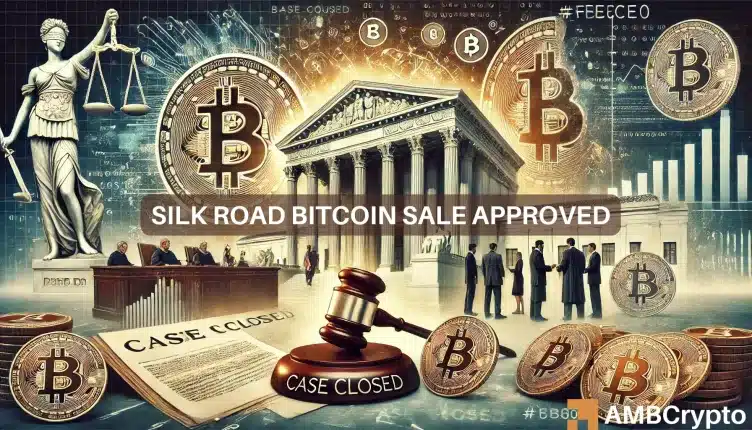The U.S. Government’s Decision to Sell Confiscated Bitcoin from Silk Road
In a significant legal development, the U.S. Supreme Court has chosen not to review an appeal concerning the possession of 69,370 Bitcoin [BTC] that was originally seized from the underground Silk Road marketplace.
This ruling follows the Supreme Court’s decision to deny certiorari in the case presented by Battle Born Investments against the U.S. government.
Given the Supreme Court’s refusal to hear the case, the U.S. government is now authorized to sell the confiscated assets, effectively bringing an end to this legal dispute.
Events of 2022
Back in 2022, a federal court in California dismissed Battle Born Investments’ claims, asserting that it had obtained rights to the confiscated Silk Road Bitcoin through a bankruptcy estate.
Battle Born alleged that the debtor, Raymond Ngan, was “Individual X,” who purportedly misappropriated billions in BTC from Silk Road.
However, lacking substantial evidence, the court ruled against Battle Born, a decision that was later upheld by an appeals court in San Francisco.
Thus, with the recent Supreme Court ruling to not review the case, Battle Born’s legal recourse has been exhausted, enabling the government to liquidate the seized Bitcoin.
Impact on Bitcoin’s Market
Speculations indicate that the potential sale of the confiscated BTC by the U.S. government could exert significant pressure on the cryptocurrency market and influence Bitcoin’s price trajectory.
Predictably, the announcement itself had an immediate negative effect on BTC’s price, disrupting its previous upward momentum.
According to CoinMarketCap, BTC is currently trading at $62,651, denoting a 1.36% decrease over the past 24 hours.
Recent Transfers of Bitcoin
Evidently, the U.S. government has been moving substantial amounts of Bitcoin seized from Silk Road to new wallets until now.
Between July and August, approximately $2.6 billion worth of Bitcoin was transferred, often indicating preparations for a potential sale.
Nevertheless, these transfers might not necessarily signify imminent liquidation, as the U.S. Marshals Service has a custody agreement in place with Coinbase Prime, suggesting that the assets were relocated for secure storage rather than immediate sale.
Prior to any sale, the U.S. Marshals or any involved agency must adhere to regulatory procedures.
Proposed Utilization of Confiscated Bitcoin
Several U.S. officials have put forward alternative proposals for the use of the confiscated Bitcoin.
For example, Democratic Representative Ro Khanna has recommended that the government maintain these assets as a strategic reserve.
Moreover, Republican presidential candidate Donald Trump has shown interest in establishing a BTC reserve if elected.
During a recent cryptocurrency conference in Nashville, Trump pledged to create a “strategic Bitcoin stockpile” if he assumes office again.
He declared,
“If I am elected, it will be the policy of my administration, the United States of America, to retain 100% of all the Bitcoin currently held by the U.S. government or obtained in the future.”

